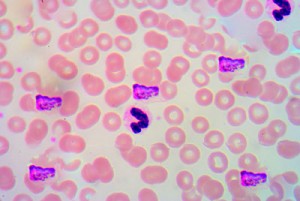CHMP adopts positive scientific opinion of malaria vaccine Mosquirix
Posted: 24 July 2015 |
The CHMP has adopted a positive scientific opinion for Mosquirix, making it the first vaccine for the prevention of malaria to reach such a milestone…


The Committee for Medicinal Products for Human Use (CHMP) of the European Medicines Agency (EMA) has adopted a positive scientific opinion for GSK’s malaria candidate vaccine Mosquirix in children aged 6 weeks to 17 months.


Mosquirix is the first candidate vaccine for the prevention of malaria to reach this milestone. While other vaccines tackle viruses or bacteria, Mosquirix has been designed to prevent malaria caused by the Plasmodium falciparum parasite, which is most prevalent in sub-Saharan Africa (SSA). In 2013, there were an estimated 584,000 deaths from malaria with around 90% of these occurring in SSA, and 83% in children under the age of five in SSA.
The CHMP scientific opinion is a key step in the regulatory process toward making Mosquirix available alongside existing tools currently recommended for malaria prevention. The positive opinion for young children was based on the review of data assessing the candidate vaccine’s safety, efficacy and quality. Clinical data submitted for CHMP assessment were mainly from a Phase III clinical trial programme involving more than 16,000 young children that was conducted by 13 African research centres in eight African countries.
Data from this trial programme demonstrate that over the first 18 months following three doses of Mosquirix, malaria cases were reduced by almost half in children aged 5-17 months at the time of first vaccination but only 27% in infants aged 6-12 weeks. At study end, four doses of Mosquirix reduced malaria cases by 39% over four years of follow-up in children, and by 27% over three years of follow-up in infants.
GSK has committed to a not-for-profit price for Mosquirix
Sir Andrew Witty, CEO of GSK said, “Today’s scientific opinion represents a further important step towards making available for young children the world’s first malaria vaccine. While RTS,S on its own is not the complete answer to malaria, its use alongside those interventions currently available such as bed nets and insecticides, would provide a very meaningful contribution to controlling the impact of malaria on children in those African communities that need it the most. The work doesn’t stop here and GSK remains committed to investing in R&D for malaria vaccines and treatments to find more ways to tackle this devastating disease.”
The World Health Organization (WHO) will now formulate a policy recommendation on use of the vaccine in national immunisation programmes once approved by national regulatory authorities.
GSK has committed to a not-for-profit price for Mosquirix so that, if approved, the price of Mosquirix would cover the cost of manufacturing the vaccine together with a small return of around five per cent that will be reinvested in research and development for second-generation malaria vaccines, or vaccines against other neglected tropical diseases.




